Our Dental Treatments in Los Algodones
Dental Surgeries
Our Dentists have completed extensive training and education to be able to offer a variety of dental services, from basic preventive services to more complex dental implant and cosmetic procedures. In Dental Solutions, we offer a number of different dental surgeries, including procedures provided by highly skilled professionals in Los Algodones, Mexico dentistry, which involve artificially modifying dentition.
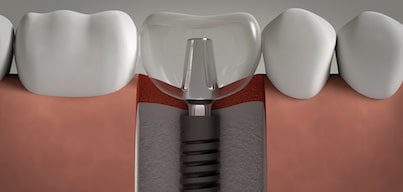
Dental Implants
Dental implants are the most aesthetic and durable way to replace missing teeth, since dental implants are a permanent solution that provides an almost identical appearance to natural teeth.
The process of placing dental implants requires inserting a metal piece, made of titanium, in the jawbone, below the gum through a simple surgical procedure. This piece replaces the tooth roots and, will support a porcelain crown that will replace the missing tooth, giving an appearance and feeling almost identical to the natural teeth.
We also work with Zygomatic Implants.
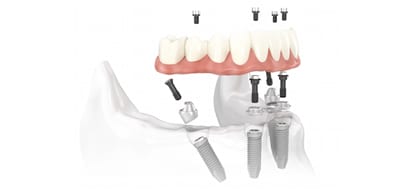
All-on-4
The All on 4 is a technique of implants to replace missing teeth with a complete dental bridge, supported only with four titanium implants placed into the jawbone, ensuring the osseointegration of implants and the complete retention of the prosthesis.
The big difference between individual dental implants and All on 4 is that this technique requires only four implants to support the entire bridge, which reduces costs and avoids the need for bone grafts in the jaws, besides being much faster and efficient.

Root Canal
If the tooth suffers any damage caused by cavities, cracks, fractures, gum disease, excessive filling, among others; it can cause pulp inflammation and infections that can be spreaded to adjacent tissues. To save the tooth with an affected pulp is necessary to perform a root canal.
Performed under local anesthesia, a root canal is completely painless. The dentist access the pulp to remove affected tissue with precision instruments and then fills in. The treatment ends with the restoration of the crown, to regain function and natural look.
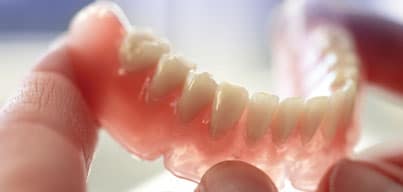
Dentures
Dentures are removable dental prosthesis that replaces one or more missing teeth.
Dentures are supported by the bone tissue of the patient or the mucous membranes. The advantage of removable prostheses are usually related to cost and installation.
Dentures tends to be cheaper than dental implants and don’t require, in most cases, surgical procedures for installation. Are custom made and can be installed in a couple of appointments. The dentist will create the model prosthesis using the material that will fit your budget and aesthetic needs.
We also have Partial Dentures and Flexible Partial Dentures available.
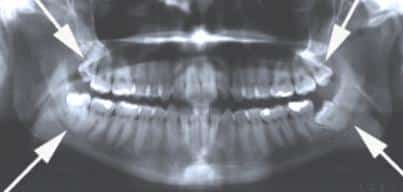
Wisdom Teeth
Wisdom teeth are the third molars, which usually emerge between the ages of 16 and 26. Located at the bottom of the dental arch, it is quite common that these teeth lack the necessary space for growing comfortably. Wisdom teeth can erupt completely, but being so far into the mouth, its almost impossible to brush them properly, so the plaque, tartar and bacteria build up, creating a rich environment for cavities.
If the wisdom teeth don’t have enough space to grow they can damage nearby teeth, while also affecting occlusion and the appearance of your denture, making extraction a priority.
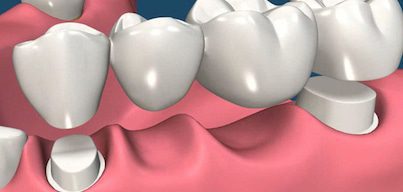
Dental Bridges
A bridge is a prothesis set to fill the space left by one or more missing teeth. A bridge needs to have at least two adjacent teeth or individual implants on both sides of the space to be restored. These teeth are called abutments and act as pillars to support the bridge. The false teeth are placed between abutments.
Dental bridges are the perfect solution for people who have lost one or more adjacent teeth and can’t opt for individual dental implants. The biggest advantage of dental bridges to replace missing teeth is that it doesn’t require surgery. Bridge installation is quick, simple and doesn’t require rest after the procedure.
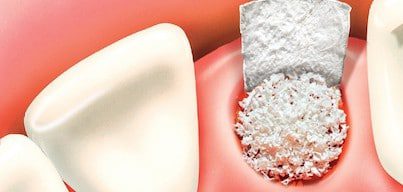
Bone Grafts
Bone grafts are taken from other parts of bone tissue and placed in the required location to increase its size. These grafts can be taken from the patient or just plastic biocompatible materials.
Far from what you may think about, bone grafting it’s a simple and painless procedure.
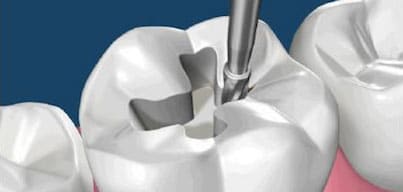
Composite Fillings
Composite fillings are a mixture of plastic and glass used to restore and fill decayed teeth.
As composite fillings have an identical color to the tooth, the restored area blends with the natural teeth and provides a completely natural-looking result.
Dental resins are also used in cosmetic dentistry to repair broken and chipped teeth and filling teeth gaps, among other uses.

Oral and Maxillofacial Surgery
Oral and maxillofacial surgery is a dentistry and surgical specialty, oriented to solve the pathologies that could affect the oral cavity, face, neck and head.
This specialty includes the study, diagnosis and treatment of diseases and may affect tissue function in these regions.
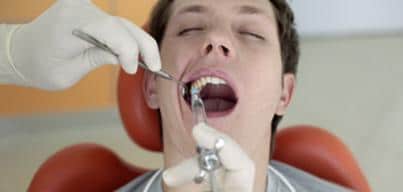
Extractions
When a tooth has suffered a great trauma, has too much damage caused by cavities or it’s impossible to save it performing a root canal treatment, extraction is necessary. Tooth extraction is a painless process. The dentist will apply a local anesthetic and proceed with the extraction, which can be simple (for those visible teeth) or surgical (for those teeth under the gum tissue).
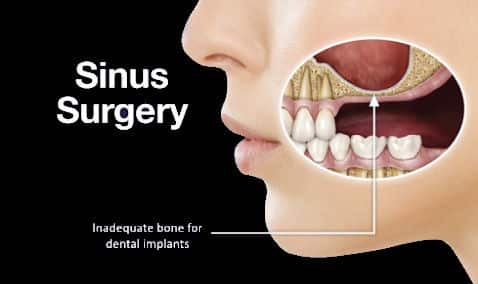
Sinus Lift Surgery
Dental implants are becoming popular since they are an easy way to restore your smile and recover your oral health. Some patients are not directly eligible for implants and they require previous surgery to avoid implant failure, like a sinus lift surgery.
Dr. Xochipilli Bojorquez offers sinus lift in Los Algodones Mexico, a simple procedure that will facilitate dental implants placement.
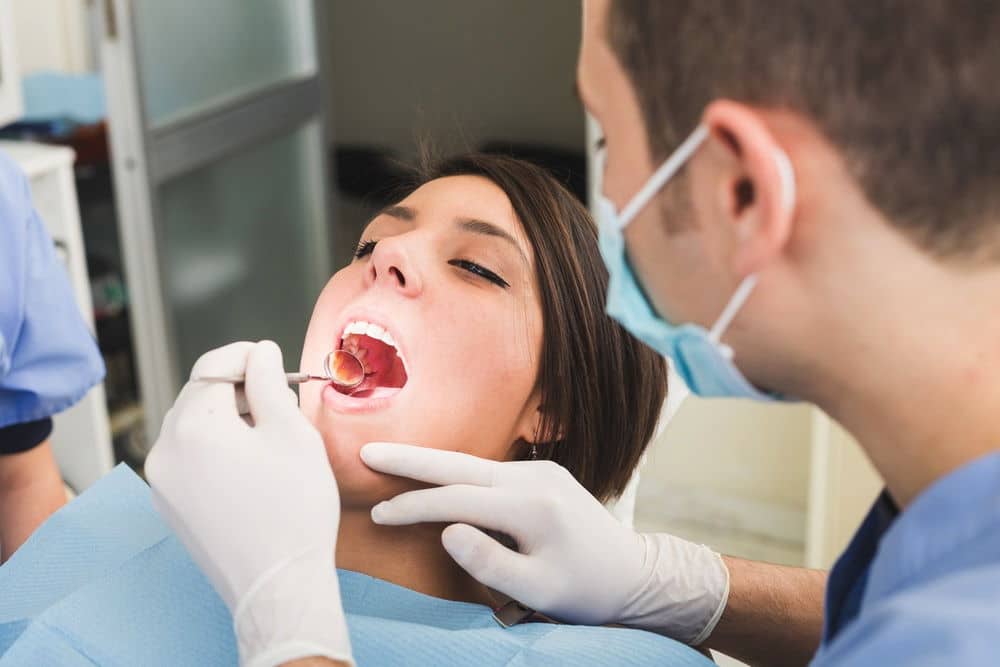
IV Sedation Dentistry
Patients who suffer from dental anxiety or severe phobia to the dentist’s office can have such a hard time that they prefer not to have dental treatment, even if it is a simple procedure, such as cleaning.
In these cases, sedation dentistry can be the perfect solution for the patients to relax during the consultation and to receive the dental care they need.
You can check our prices list here.
Cosmetic Dentistry
There is a branch of dentistry that is dedicated solely to improving the appearance of teeth. Through simple procedures it’s possible to improve the appearance of a smile, achieving natural and outstanding results. Cosmetic dentistry uses a few non-invasive techniques in order to whiten, fix the size, reshape and improve teeth appearance. While cosmetic dentistry is a purely aesthetic procedure, is not covered by insurance, but it’s essential for the welfare and quality of life.
Nothing improves self-esteem and personal appearance as a bright and beautiful smile.
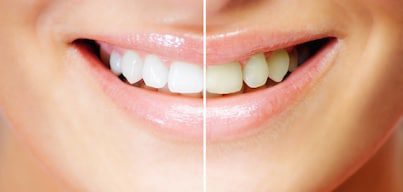
Teeth Withening
This popular procedure brightnens stained or discolored teeth. There are several teeth whitening procedures, including the use of whitening gels and laser whitening, where laser lights are used to achieve the desired effect. Laser whitening is much faster and effective, but more expensive.
We also do Zoom Whitening.
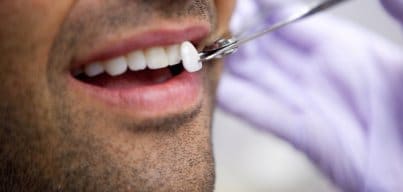
Veneers
Covers made of porcelain that resemble thin sheets, veneers are placed on the outside of the teeth. They are tailor made and used to coat the teeth to disguise spots, discolorations and imperfections. They are ideal to restore eroded, irregular and misaligned teeth; or to cover broken or chipped teeth.
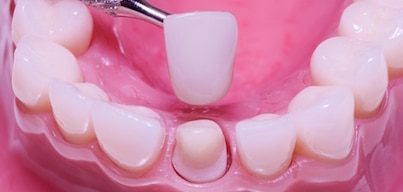
Dental Crowns
Crowns are a fixed implants that are placed directly on the damaged tooth to restore its aesthetic, masticatory and occlusal function. It’s ideal for restoring chipped, stained or badly damaged teeth, as the natural tooth is used as a support for the prosthesis.
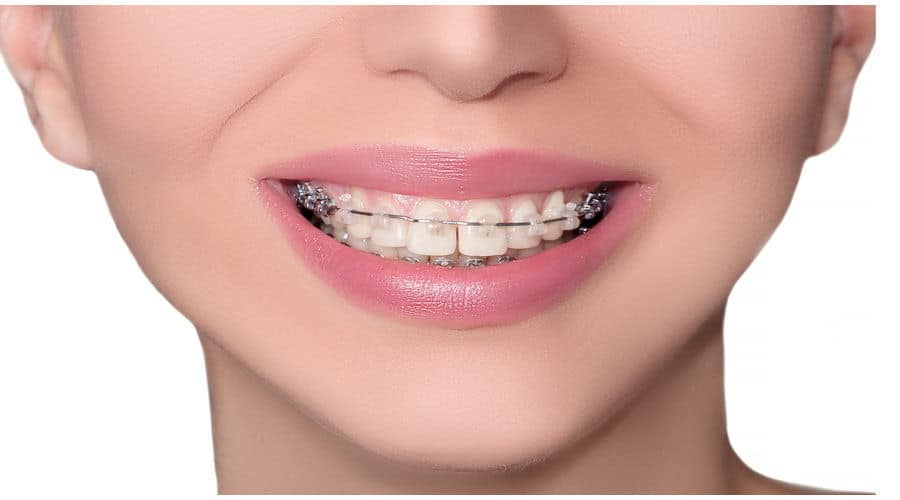
Braces
Having misaligned teeth or bite problems is one of the most common pathologies in dentistry, and although you may think that this only affects the aesthetics of the smile, this can negatively affect your oral health.
At our dental clinic in Los Algodones, our first-class orthodontists will be able to evaluate your case and offer you the best treatment so that you can have a healthy and beautiful smile.
We also have damon braces.
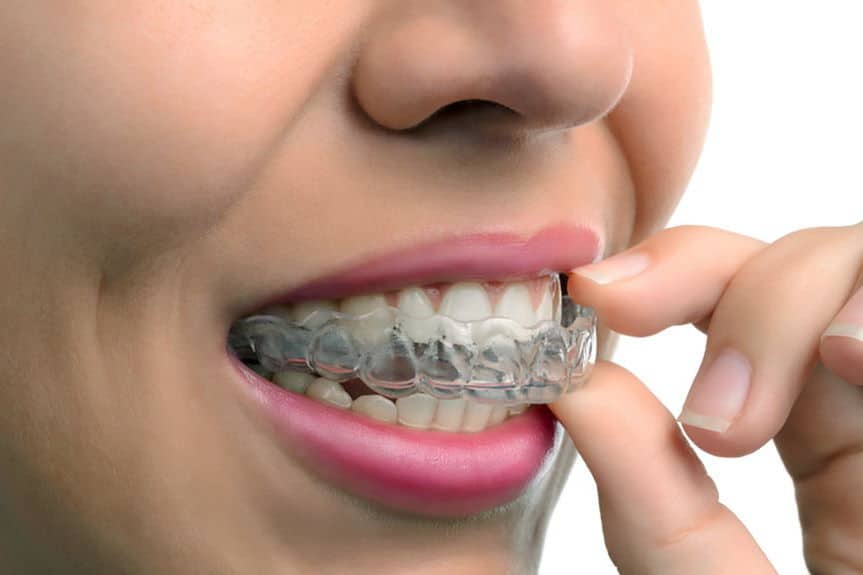
Invisalign
At Dental Solutions Los Algodones we want to offer you the best and most modern treatments so you can have a perfect smile; That is why our dentists are constantly trained to master the new techniques of orthodontics and smile design, such as Invisalign braces.
If you want to align your teeth and improve the aesthetics of your smile, but you are looking for a discreet treatment that offers quick results, Invisalign may be a perfect option for you.
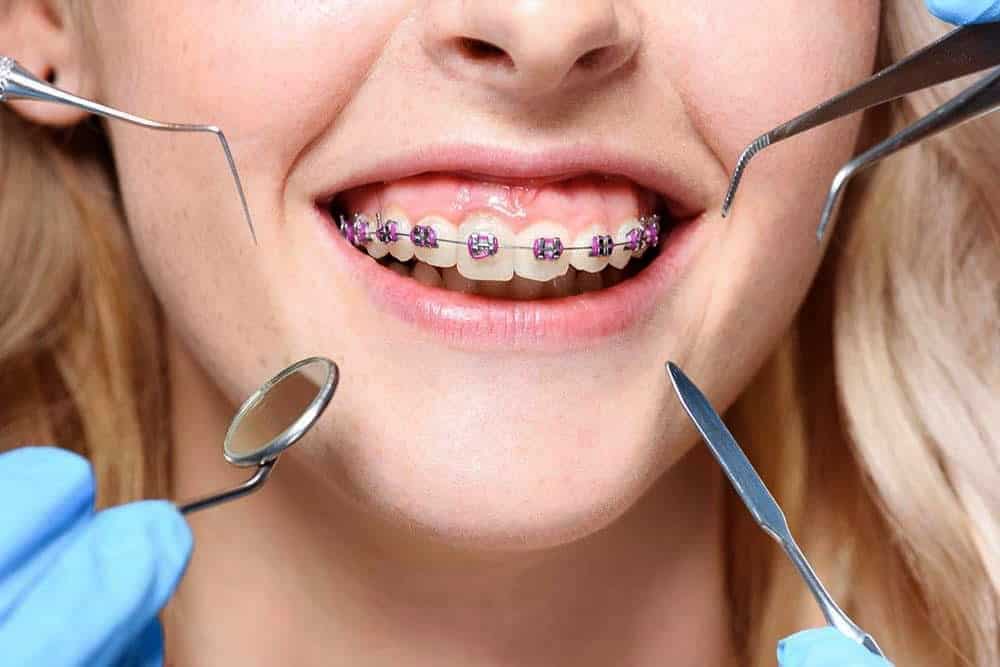
Orthodontics
Misaligned teeth and malocclusions can affect the patients’ health, hinder basic functions of the mouth such as chewing or speaking, in addition to causing self-esteem problems. The different orthodontic treatments can solve these pathologies and make patients have a healthy and beautiful smile.
At our dental clinic in Los Algodones, we have an exceptional team of dentists, experts in the most modern methods to align teeth and correct occlusion problems.
You can check our prices list here.
